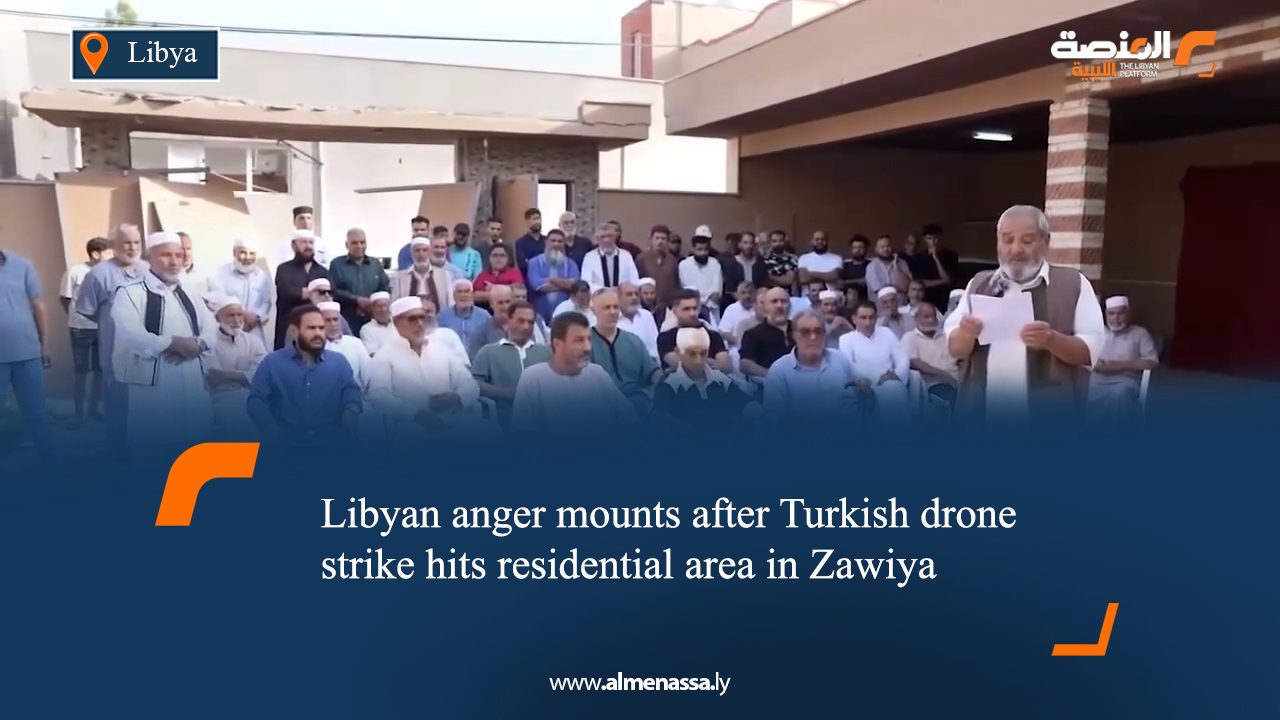In a development that has ignited widespread controversy, a Turkish drone strike early Friday morning targeted a civilian home in the Espaan district of Zawiya, western Libya, injuring a child and damaging neighboring houses and private vehicles. Libya’s Government of National Unity (GNU) claimed the operation was part of a broader campaign against suspected migrant smuggling sites. However, the official justification has done little to quell public and political outrage.
In a sharply worded statement, 42 municipalities across western and mountainous regions called on the Turkish ambassador in Libya to immediately suspend drone flights over Libyan territory. The signatories denounced repeated strikes on civilian areas as flagrant violations of national sovereignty and direct threats to innocent lives. The municipalities also urged Ankara to halt military support to armed factions destabilizing Libya’s security, warning that continued aggression risked triggering mass unrest and deepening the country’s fragile state.
In Zawiya, residents condemned what they described as “reckless bombing” that endangered their homes, lives, and property. A community statement squarely blamed the GNU’s Ministry of Defence and the attorney general, accusing them of showing blatant disregard for civilian safety. Residents stressed that the attack originated not from foreign enemies, but from institutions meant to safeguard citizens — demanding an immediate investigation, accountability for those responsible, and compensation for affected families.
Libya’s National Human Rights Institution also condemned the incident, reporting that the home of Mahmoud Al-Fard had been directly hit. The organization described the strike as a grave breach of international humanitarian law, pointing to failures in distinguishing military targets and maintaining proportionality — core principles that, if ignored, elevate such actions to war crimes. The institution urged an end to drone operations targeting densely populated civilian neighborhoods and emphasized the need to uphold the protection of non-combatants.
Political analyst Jalel Harchaoui offered a deeper reading of the situation, arguing that the strike was less about disrupting smuggling networks than about asserting control over strategic ground near Zawiya’s oil refinery. He noted that the use of Turkish-made weaponry marked a troubling escalation in the deployment of foreign military hardware amid local power struggles.
Despite mounting public criticism, the Ministry of Defence reaffirmed its intention to carry out “precise aerial operations” against what it labeled as criminal strongholds. It cited ongoing human trafficking and drug trade activities as key threats to national stability, while warning civilians to stay away from suspected locations and avoid any contact with the targeted groups.
As the defence ministry stands by its rationale and critics demand accountability, Libyan civilians are left navigating rising anxiety over future attacks — and a broader concern that the conflict is straying farther from justice, and deeper into chaos.


